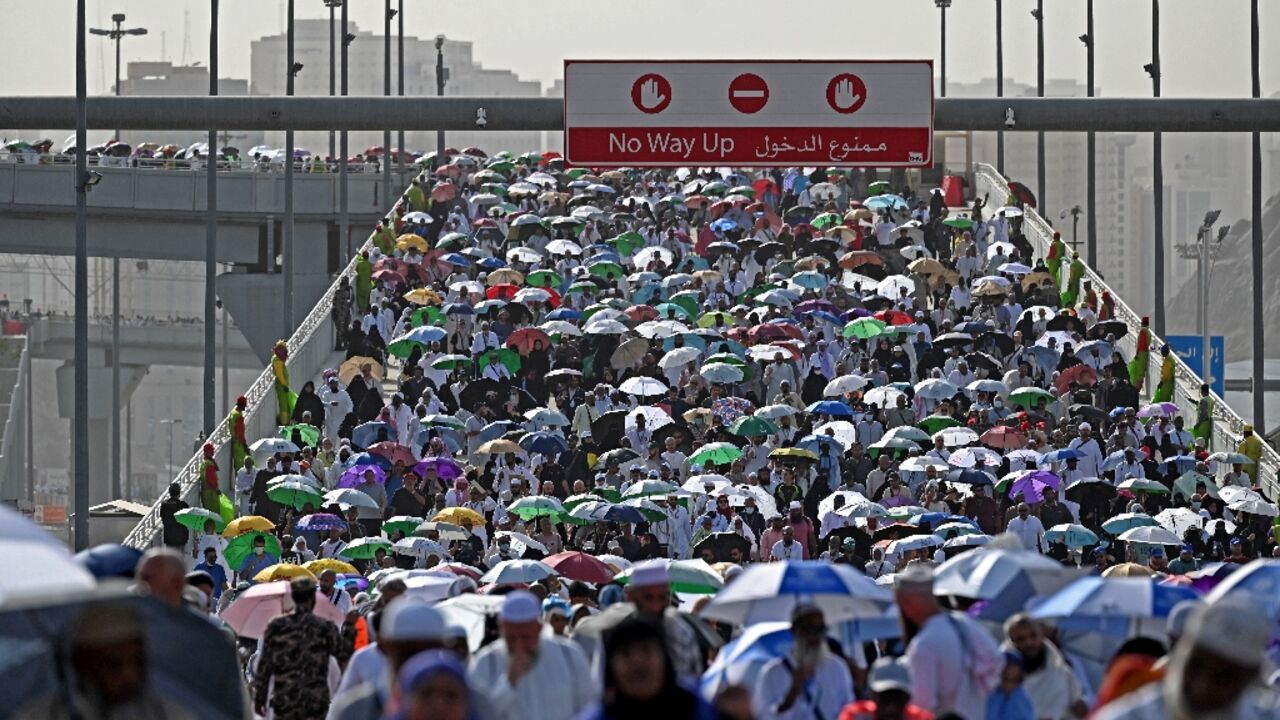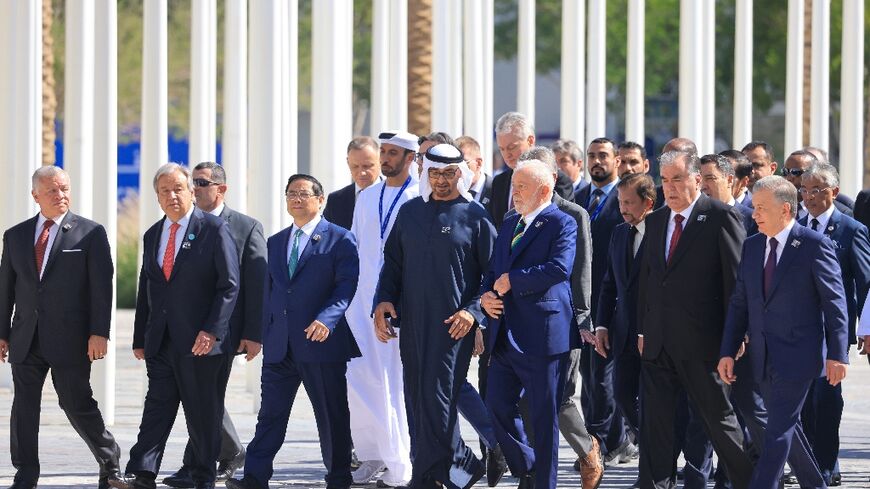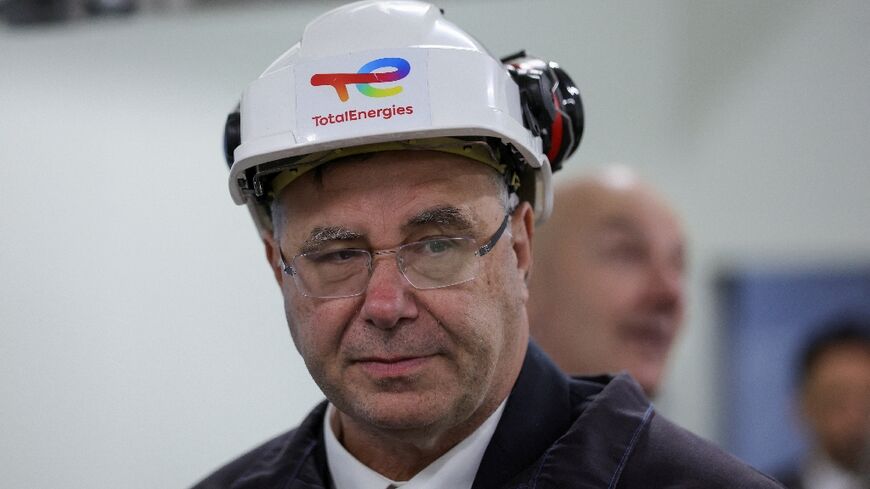Not all Arab states backing Saudi Arabia in COP28 talks

Saudi Arabia, the staunchest opponent of phasing out fossil fuels at COP28, may dominate the Arab bloc at the UN climate talks in Dubai. But it is far from the only voice.
"We're seeing a split between the UAE and other big petrostates on the future of fossil fuels," said Jim Krane of Rice University in Texas.
While Riyadh, the world's top crude exporter, didn't want fossil fuels mentioned at all in a draft text at the UN talks, the Emirati president of COP28, Sultan Al Jaber, urged an historic accord that addresses the fate of oil, coal and gas.
Of the 22 Arab nations, Riyadh can count on support from four other members of the OPEC oil cartel -- Kuwait, Iraq, Algeria and Libya -- to push back against a fossil fuel exit.
Qatar too has invested "tens of billions of dollars in the liquefied natural gas industry", its energy minister Saad Al-Kaabi said Monday during an event in Doha, where he also called for a "priority to be given to energy security".
Gulf states are dependent on hydrocarbons to finance their economies and development projects, said Laury Haytayan of the Brussels-based Natural Resource Governance Institute.
Riyadh has launched a programme of reforms to transform the kingdom into a centre for business and tourism. "Saudi Arabia wants to make sure it gets to 2030 with its vision achieved and that requires oil and gas money," Haytayan said.
"For the Saudis, despite living in one of the most heat-stressed places on Earth, saving oil is more important than saving the climate," Krane said.
The UAE, however, "is more comfortable with phasing down fossil fuels because its economy is way more diverse than most OPEC members," he said.
The small Gulf state also "wants the prestige that comes from hosting a successful COP", Krane argued.
Abu Dhabi has remained in the background in discussions within the Arab bloc, according to a source close to the negotiations, who spoke on condition of anonymity.
- Extreme hajj heat -
But for the Arab countries of the Levant and Maghreb that don't have oil riches, lining up with the Saudis clashes with their own environmental, agricultural and health interests, NGOs say.
The region is one of the hardest hit by global warming.
"We documented the impact of climate change on Morocco, how agriculture is impacted in Egypt and Tunisia and Algeria, also how cedar forests are impacted in Lebanon," said Ghiwa Nakat, Middle East and North Africa director at Greenpeace.
Even in Saudi Arabia, a 2 degrees Celsius rise in temperatures will render the annual pilgrimage to Mecca -- a practice Muslims are required to do at least once in their lives -- "very hard to make because of heat stroke", Nakat warned.
But the kingdom is already the leading economy in the Arab world and a major donor to non-oil-producing countries like Jordan, Egypt and Lebanon.
At COP28, delegations from these countries, which are heavily reliant on tourism, include fervent climate campaigners.
"Some are being vocal and others are not obviously, because probably of the dependency" (on oil producers), Nakat said. But she points to change with countries like Morocco, recently ranked among the world's top 10 most active countries in the fight against climate change, according to the Climate Change Performance Index.
As the negotiations enter the final stretch, "we haven't honestly seen the leadership we wish and that the region needs", said Nakat.





